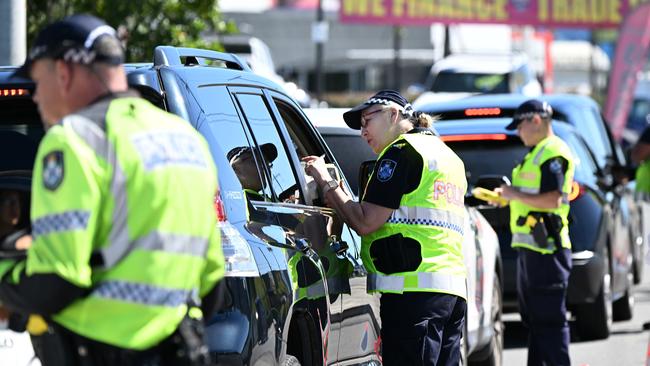‘Reform dopey drug driving laws’, say medicinal cannabis industry and policy experts
If you have a prescription for medicinal cannabis and your driving is unimpaired, should you face a fine and loss of licence? Why premiers are being urged to rethink state laws.

Reform of roadside drug tests to legally protect patients using medicinal cannabis is being pushed by Australia’s medicinal cannabis industry and some policy experts.
The use of medicinal cannabis has exploded in Australia since prescriptions were legalised in 2016, but only two jurisdictions have so far changed drug-driving laws to reflect the situation.
Currently, drivers in most jurisdictions who test positive for tetrahydrocannabinol (THC) in roadside drug tests face fines and possible loss of licence.
The medicinal cannabis industry is concerned many Australians are being deterred from obtaining beneficial medications due to fear of losing their driving licences.
Craig Knight, chief operating officer with Tasmanian Botanics, Australia’s largest grower and manufacturer, said people taking cannabis under medical direction whose driving was not impaired should not be penalised.
“If you’re driving unimpaired and you have a script … I think it is quite reasonable for you to be on your way,” Mr Knight said. “Otherwise, it very much feels like you’re being pinged on a technicality.”
Medicinal Cannabis Industry Australia agreed, saying patients having to choose between driving or taking medication was a “big issue” requiring reform.
Executive officer Patty Holmes said some patients were prescribed cannabidiol (CBD) medications, instead of those containing THC, so they could keep driving – even though this may not be the best option for them.
“Because patients can’t drive having any THC in their system, when they go to a doctor with neck pain but say they need to drive, they get a CBD-dominant product,” Ms Holmes said.
“That’s good for inflammatory pain or neuropathic pain but that mightn’t be what’s causing their pain, so they get prescribed a product that they say ‘doesn’t work for me’.
“But really, it’s not that it doesn’t work – it’s that it’s the wrong product. So patient prescribing is actually being influenced by driving laws.”
The issue has been taken up by drug policy think tank the Penington Institute, which has written to all state and territory premiers and chief ministers – aside from those of Tasmania and Victoria, which have already made changes – urging reform.
“The law is lagging behind the science – the tests are so sensitive they are picking up cannabis from weeks ago,” Institute chief executive John Ryan said.
“We have a roadside testing regime introduced before we had medicinal cannabis. It’s a bit of a mess.”
With an estimated 700,000 Australians now using medicinal cannabis, Mr Ryan was urging all jurisdictions to follow Victoria and Tasmania in introducing legal protections.
Victorian law affords magistrates discretion as to whether to impose a fine or licence suspension in cases where a driver had a script, was taking the medication in line with medical advice and was not impaired.
Tasmania has gone further, introducing a formal legal protection, if the person had a script from a Tasmanian doctor and was not impaired. However, a magistrate recently ruled scripts issued by interstate doctors offered no such protection.
The industry would like to see reforms that avoid the need for patients taking medicinal cannabis to go to court, but Mr Ryan said governments should at least consider the Victorian model as a first step.
“The test is not a test for impairment, it’s just a test for presence,” he said.
“Ultimately, we’ve got to get to a situation where people on prescribed medications, who are following doctors’ orders and are not impaired, are allowed to drive.
“That would make it consistent with other psychoactive pharmaceuticals like pain relief opioids and anti-anxiety drugs.”
Unlike alcohol, where there is solid research to support a .05 blood alcohol limit, experts say cannabis can react very differently in different people, making determining a permissible level difficult.




To join the conversation, please log in. Don't have an account? Register
Join the conversation, you are commenting as Logout